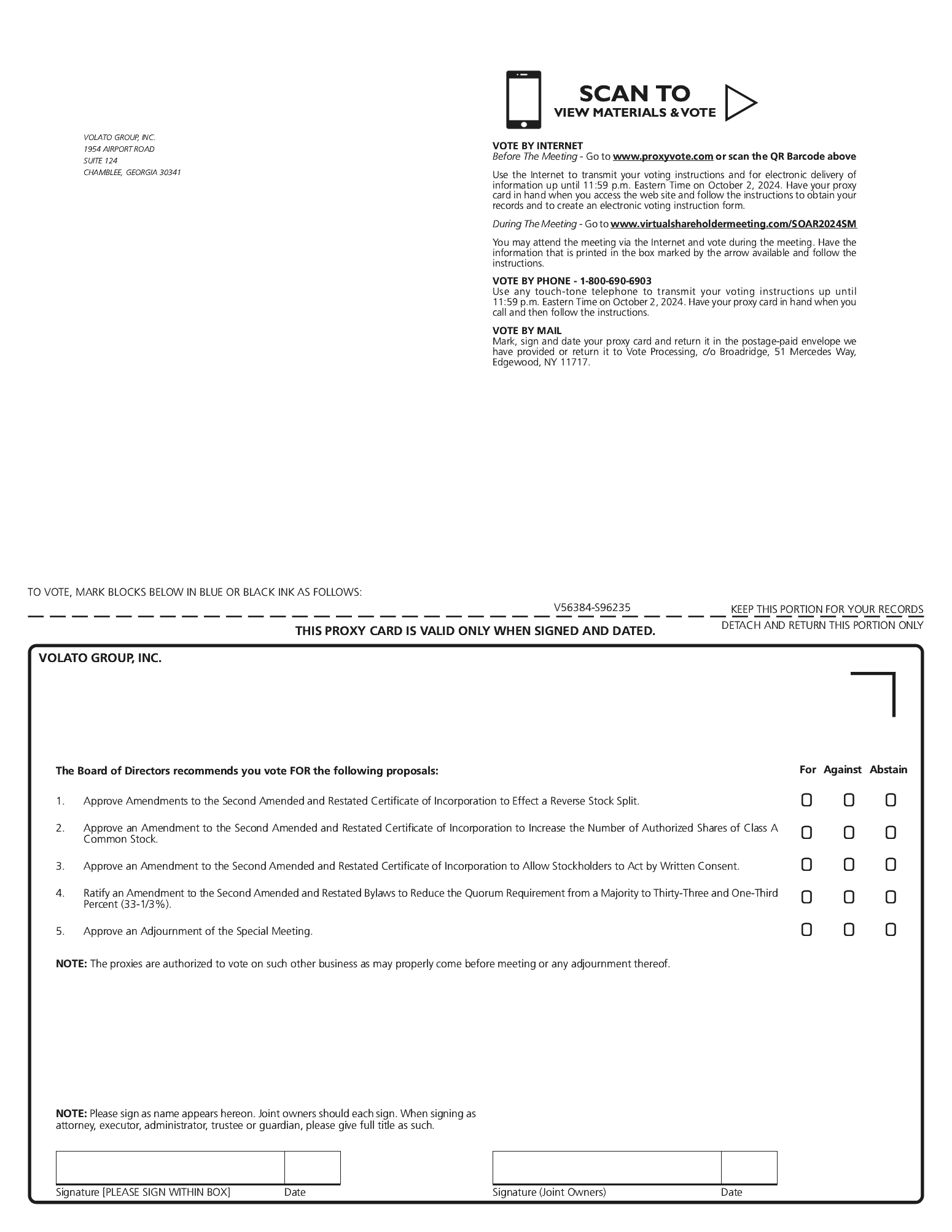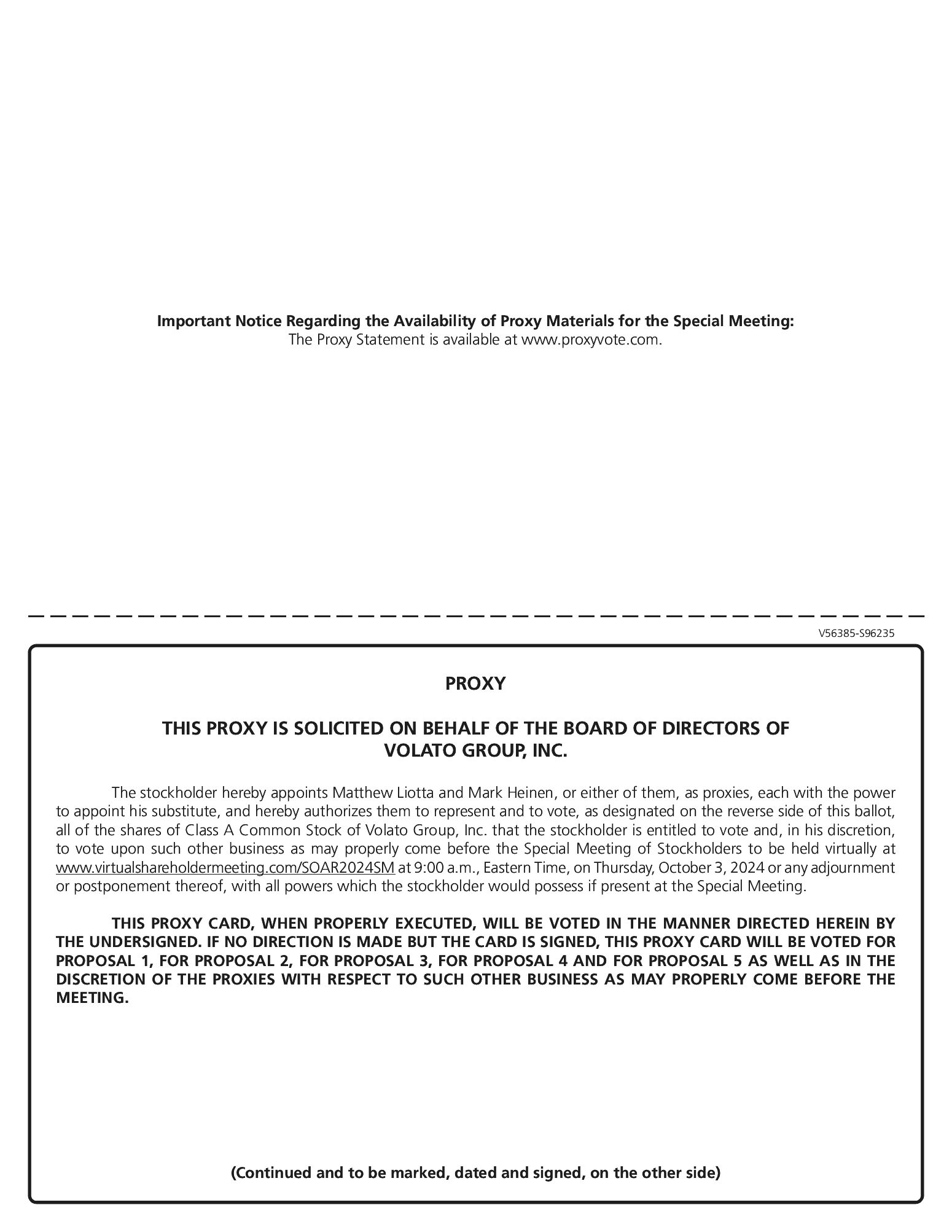PROPOSAL 2: AMENDMENT TO THE SECOND AMENDED AND
RESTATED CERTIFICATE OF INCORPORATION TO INCREASE THE NUMBER OF
AUTHORIZED SHARES OF COMMON STOCK
Our Current Charter authorizes us to issue a total of 81,000,000 shares, consisting of two classes as follows: (a) 80,000,000 shares of Class A common stock, and (b) 1,000,000 shares of preferred stock (“Preferred Stock”), each with a par value of $0.0001 per share. Our Board has approved, and is seeking stockholder approval of discretionary authority to file, an amendment to our Current Charter (the “Authorized Shares Amendment”) to implement an increase in the number of shares of authorized common stock from 80,000,000 shares to 200,000,000 shares (the “Authorized Share Increase”).
The Board has unanimously determined that the Authorized Shares Amendment is advisable and in the best interests of the Company and our stockholders. In accordance with the DGCL, we are hereby seeking approval of the Authorized Shares Amendment by our stockholders and recommend that our stockholders approve the Authorized Share Increase Proposal.
Purpose of the Authorized Share Increase
The Board believes that the proposed increase in the number of authorized shares of common stock will benefit the Company by improving our flexibility to promptly and appropriately use its common stock for business and financial purposes in the future. These business opportunities may include, but are not limited to, potential strategic transactions (such as mergers, acquisitions, and other business combinations), future stock dividends, equity or equity-linked offerings and other capital-raising or financing transactions, grants and awards under stock plans, and other types of general corporate purpose transactions. Without an increase in the number of authorized shares of common stock, the Company may be constrained in its ability to raise capital in a timely fashion or at all and may lose important business opportunities, which could adversely affect our financial performance and growth. We believe that it is important to have the flexibility to issue shares of common stock beyond the limited amount remaining.
Potential Effects of Approving the Authorized Shares Amendment
The proposed increase in the number of authorized shares of common stock will not have any immediate effect on the rights of our existing stockholders. However, the Board will have the authority to issue the additional shares of common stock without requiring future stockholder approval of such issuances, except as may be required by applicable law or rules of any stock exchange on which our securities may be listed, including the NYSE American. The issuance of additional shares of common stock may decrease the relative percentage of equity ownership of our existing stockholders, thereby diluting the voting power of their common stock. The perception that there might be additional dilution to our existing stockholders may put pressure on our stock price.
While the issuance of additional shares of common stock may be deemed to have potential anti-takeover effects, including by delaying or preventing a change in control of the Company through subsequent issuances of these shares and the other reasons set forth above, which, among other things, could include issuances in one or more transactions that would make a change in control of the Company more difficult, and therefore, less likely, this proposal to increase the authorized shares of common stock is not prompted by any specific effort of which we are aware to accumulate shares of our common stock or obtain control of the Company. A takeover may be beneficial to independent stockholders because, among other reasons, a potential suitor may offer such stockholders a premium for their shares of common stock as compared to the then-existing market price. Although the issuance of additional shares of common stock could, under certain circumstances, have an anti-takeover effect, this proposal to adopt the Authorized Shares Amendment is not in response to any effort to which the Company is aware to accumulate common stock or obtain control of the Company.
The additional authorized shares of common stock would have the same rights and privileges as the shares of common stock currently outstanding. Stockholders do not have preemptive rights with respect to our common stock. Therefore, should the Board determine to issue additional shares of common stock, existing stockholders would not have any preferential rights to purchase such shares in order to maintain their proportionate ownership thereof.We can provide no assurance that we will be successful in amending the Current Charter to increase the number of shares of common stock that are available for issuance, or that the Authorized Shares Amendment will not have an adverse effect on our stock price.


